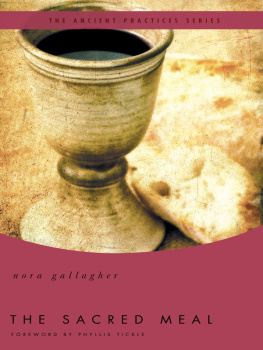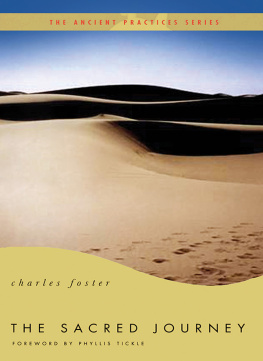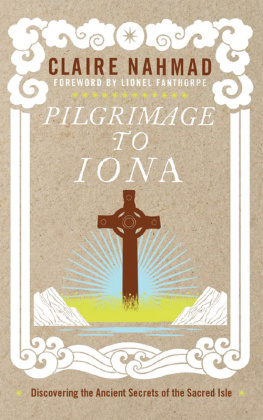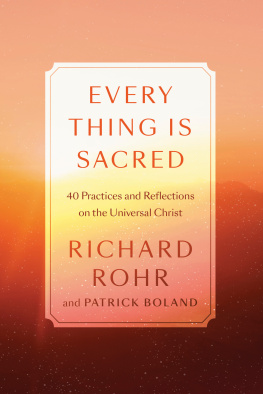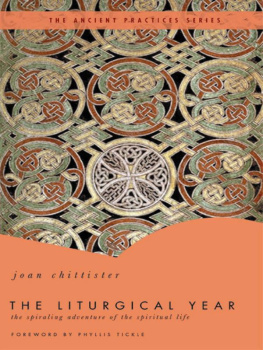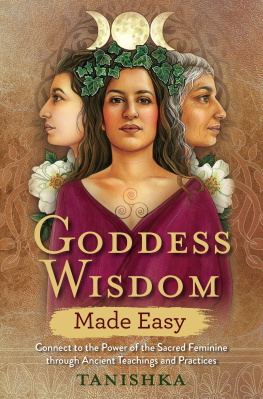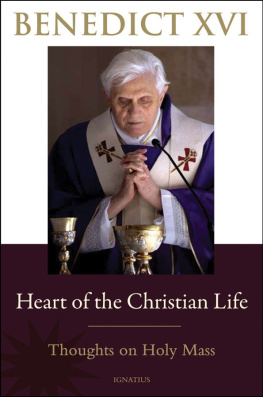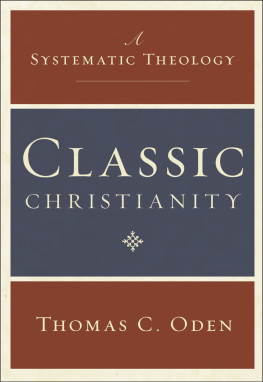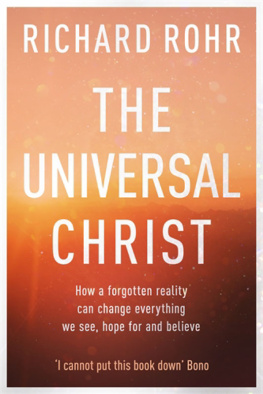
PRAISE FOR THE SACRED MEAL
This is the book I have been waiting forto give to seekers who are wary of pious language, to believers who have dozed off in their pews, to pastors who want to know how to speak in fresh ways of old truths, to anyone who asks me why I am still Christian. This is the book I have been waiting to give, but it is also the book I have been waiting to read. In it, Nora Gallagher does just what holy communion does: she folds sacred life and ordinary life together like a sandwich, holding it out to me so that I suddenly remember how hungry I am. There is not a trite or phony word in this book. It is full of real people, real life, real foodand above all a real Jesus, who keeps dying and rising into this world God so loves.
Barbara Brown Taylor, author of
Leaving Church and Feasting on the Word
Its so fitting that Nora Gallagher would write on the sacramental meal, because thats how Ive always felt about her writing... it opens up a channel of grace and offers a taste of mystery, accessible to anyone, yet so full of meaning that the inside feels bigger than the outside. The Sacred Meal is a rich meal for the soul, and will be a great book to share among a circle of friends too.
Brian McLaren, author/activist
(brianmclaren.net)
Nora Gallagher is a writer I would follow anywhere, but it is a particular thrill to follow her to the Lords Table; I know of no contemporary writer whose insights about the Eucharist match hers.
Lauren F. Winner, Duke Divinity School,
author of Girl Meets God
Eucharist. Communion. The Lords Supper. We Christians cant even agree what to call this most holy and most contentious element of our faith. What Nora Gallagher has succeeded in doing, however, is to craft a text that can bring us together so that Jesus prayer that we may all be one might be imagined. For if thats going to happen, its going to happen around the Lords Table, sharing a sacred meal.
Tony Jones, author of The New Christians
(tonyj.net)
THE SACRED MEAL
THE SACRED MEAL
nora gallagher
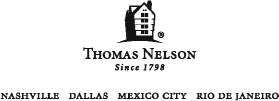
2009 by Nora Gallagher
All rights reserved. No portion of this book may be reproduced, stored in a retrieval system, or transmitted in any form or by any meanselectronic, mechanical, photocopy, recording, scanning, or otherexcept for brief quotations in critical reviews or articles, without the prior written permission of the publisher.
Published in Nashville, Tennessee, by Thomas Nelson. Thomas Nelson is a registered trademark of Thomas Nelson, Inc.
Thomas Nelson, Inc., titles may be purchased in bulk for educational, business, fund-raising, or sales promotional use. For information, please e-mail SpecialMarkets@ThomasNelson.com.
Unless otherwise noted, Scripture quotations are taken from the NEW REVISED STANDARD VERSION of the Bible. 1989 by the Division of Christian Education of the National Council of the Churches of Christ in the U.S.A. All rights reserved.
Scripture quotations marked NLT are from the Holy Bible, New Living Translation. 1996, 2004. Used by permission of Tyndale House Publishers, Inc., Carol Stream, Illinois 60188. All rights reserved.
ISBN 978-0-8499-4606-6 (trade paper)
Library of Congress Cataloging-in-Publication Data
Gallagher, Nora, 1949
The sacred meal / Nora Gallagher.
p. cm.
Includes bibliographical references.
ISBN 978-0-8499-0092-1 (hardcover)
1. Lords Supper. I. Title.
BV825.3.G36 2009
234'.163dc22
2009024633
Printed in the United States of America
10 11 12 13 RRD 9 8 7 6 5 4 3 2 1
For Lucy
CONTENTS
by Phyllis Tickle
My thanks to Flip Brophy, Elizabeth Garnsey, Cynthia Gorney, Jodie Ireland, Ann Jaqua, and Barbara Brown Taylor.
Over the centuries, one of the two or three major unifying elements of the Christian experience has been the observance, by reenactment, of the last meal that Jesus and His disciples ate together in the Upper Room before His arrest in the Garden of Gethsemane. Sometimes known today as the Lords Supper, sometimes as the Eucharist, sometimes as the mass, and sometimes just simply as holy communion, that sacred meal has been referred to over the years of Christian history by many names. But regardless of which name has been assigned to it at any given time in any given place by any given group of believers, the sacred meal has remained as a thread common to all the disparate groups within the larger Christian family, for it is the one that most keenly marks Christian as Christian and community as community.
There have also been doctrinal differences, of course, about the exact nature and proper understanding of what transpires in the taking of the communion food and drink. Some might even say that many of those differences have been dogmatic ones, while still others can persuasively argue that the resulting quarrels have been as superficial as they have been painful. But the questions about whether the bread of communion is the body of Jesus transubstantiated or whether it serves symbolically as that body or whether it functions only as a remembrance, ultimately make no difference in one central fact: when Christians participate in the sacrament of the shared table, they are remembering that pivotal night and those compelling words that still ring down over the millennia: This bread is My flesh, broken for you, and this cup is My blood, shed for you. Do this in remembrance of Me.
So we eat, and we remember... and may God forbid that ever there should be a time when some of us do not weep as we share that common table, just as, pray God, no single one of us should ever join our fellows around that table without being, from time to time, among the ones who weep. Communion is where we join, one with another in God, as in no other act and no other practice within this life; and the joining is exquisite in its joy and its sorrow, its nurture and its costs.
Because the sacred meal is so holy and so central, thousands of words have been expended on it. Undoubtedly other thousands will likewise be devoted to it in the future. Those words and the books and essays constructed from them have added, and will continue to add, greatly to the Churchs understanding of the history of the Lords Supper, of the doctrines that have swirled around it, of the various liturgies that inform it, of a myriad of circumstances that may attend it. But this book about communion is not principally about any of those things. Rather, this book is about one Christians lifelong engagement with the Eucharist and about the richness of being sometimes among the weeping, and sometimes among the serving, and sometimes among the rejoicing. This is, in sum, a deeply personal and deeply confessional book, written by a singularly gifted and skilled writer, about the Eucharist... about that practice which is central to her faith.
This book also, and obviously, belongs to a series of books. That is, it is one in a set of eight books. Seven of those volumes treat the seven ancient practices that inform Christianity, and the eighth volume, which in actuality is the first of them, is an introduction not only to the practices themselves and what they are, but also to the concept of practices and their role in the formation of the Christian life. Every one of those ancient practicesfixed-hour prayer, Sabbath observance, the keeping of the liturgical year, pilgrimage, tithing, fasting, and the sacred mealhas been in and with Christianity from the beginning, but none of them has the poetry, the stark, steely anamnesis of the sacred meal. And no presentation of the sacred meal and its terrible power to make of us one body in Christ, will ever be more simply, more directly, or more compellingly written than is this one by Nora Gallagher.
Next page
